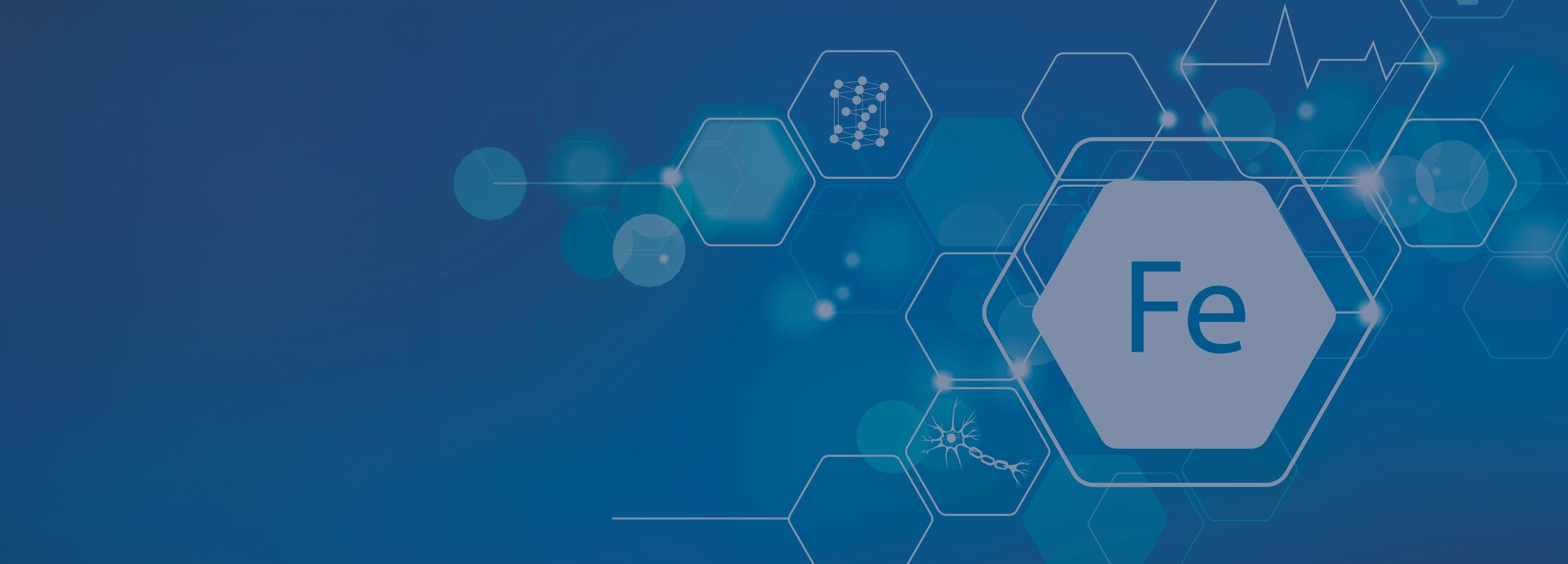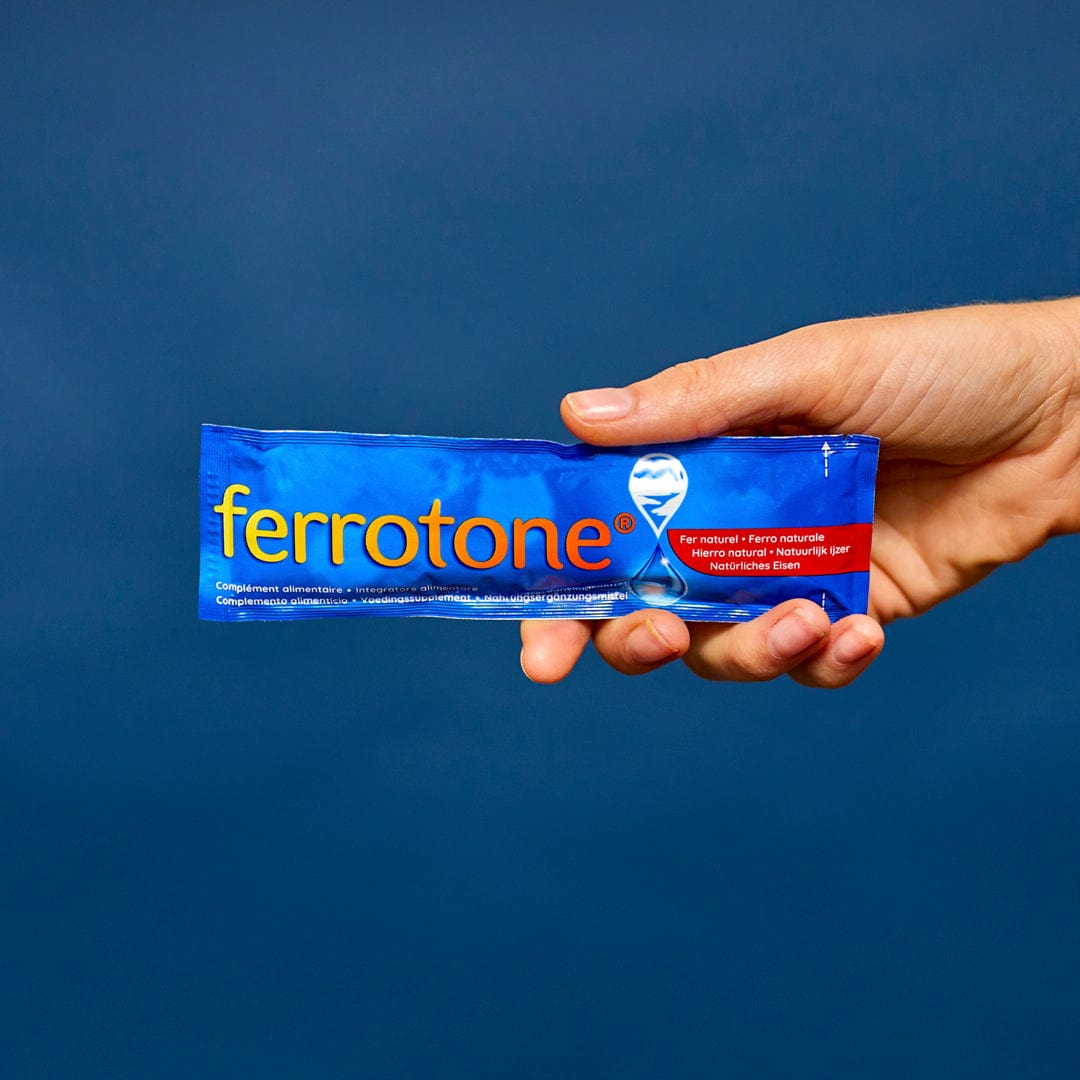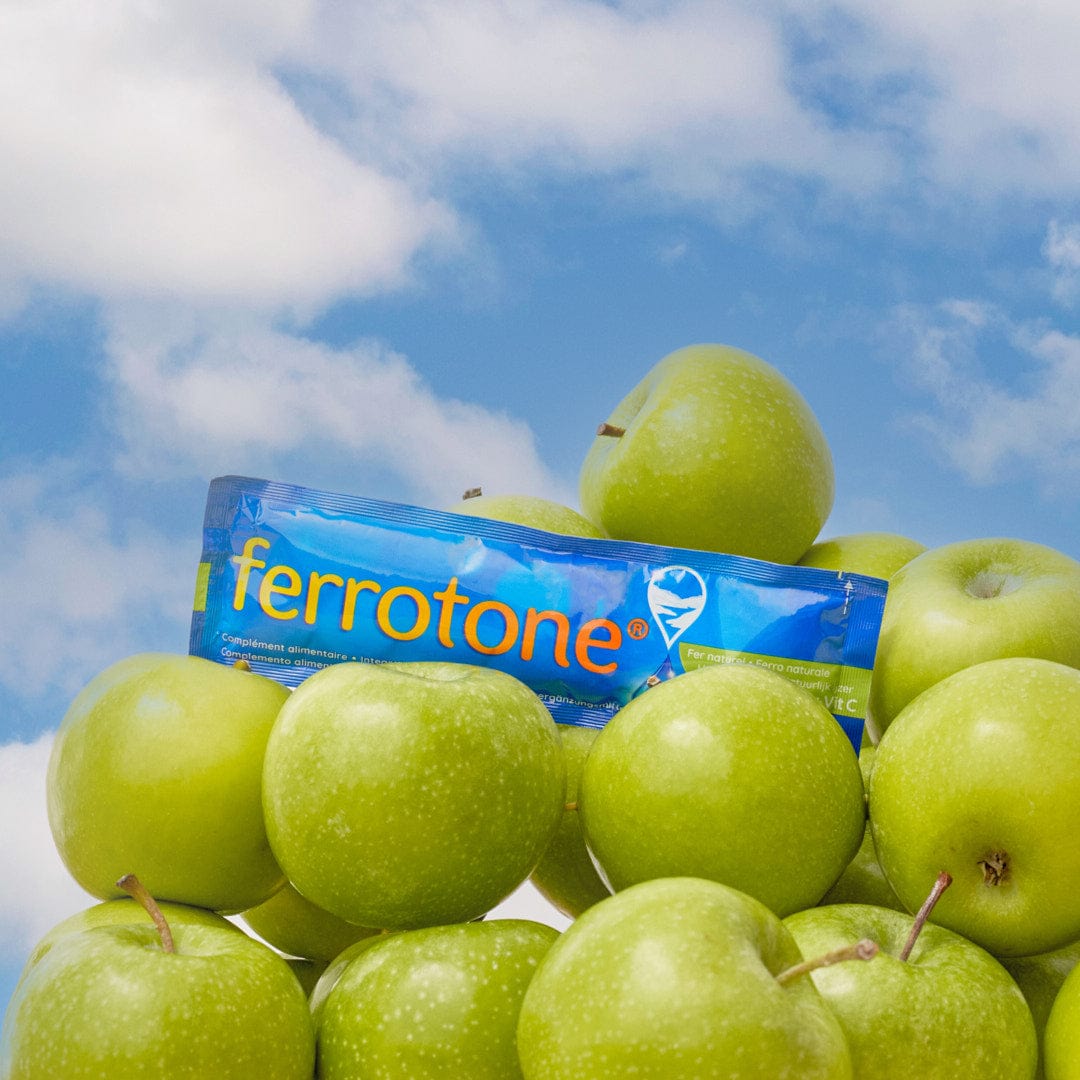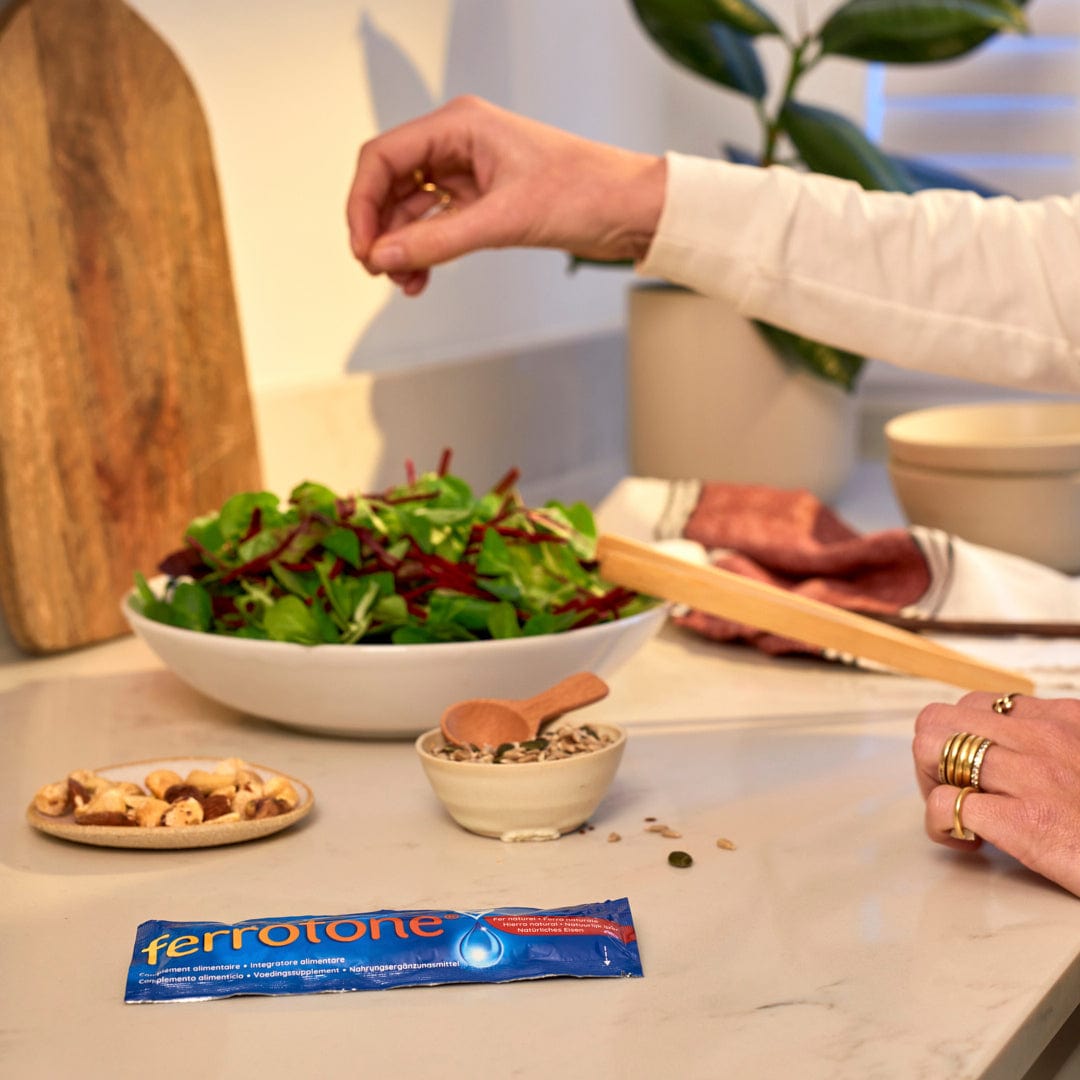
Iron in the Diet
The body is not efficient when it comes to absorbing iron, we only absorb and use a portion of the iron we take in. Especially if the type of iron we absorb is non-heme iron, often found in vegetarian sources as our bodies find this much harder to absorb. Due to the difficulty in absorption of iron, it can be difficult to sustain our iron levels (1).
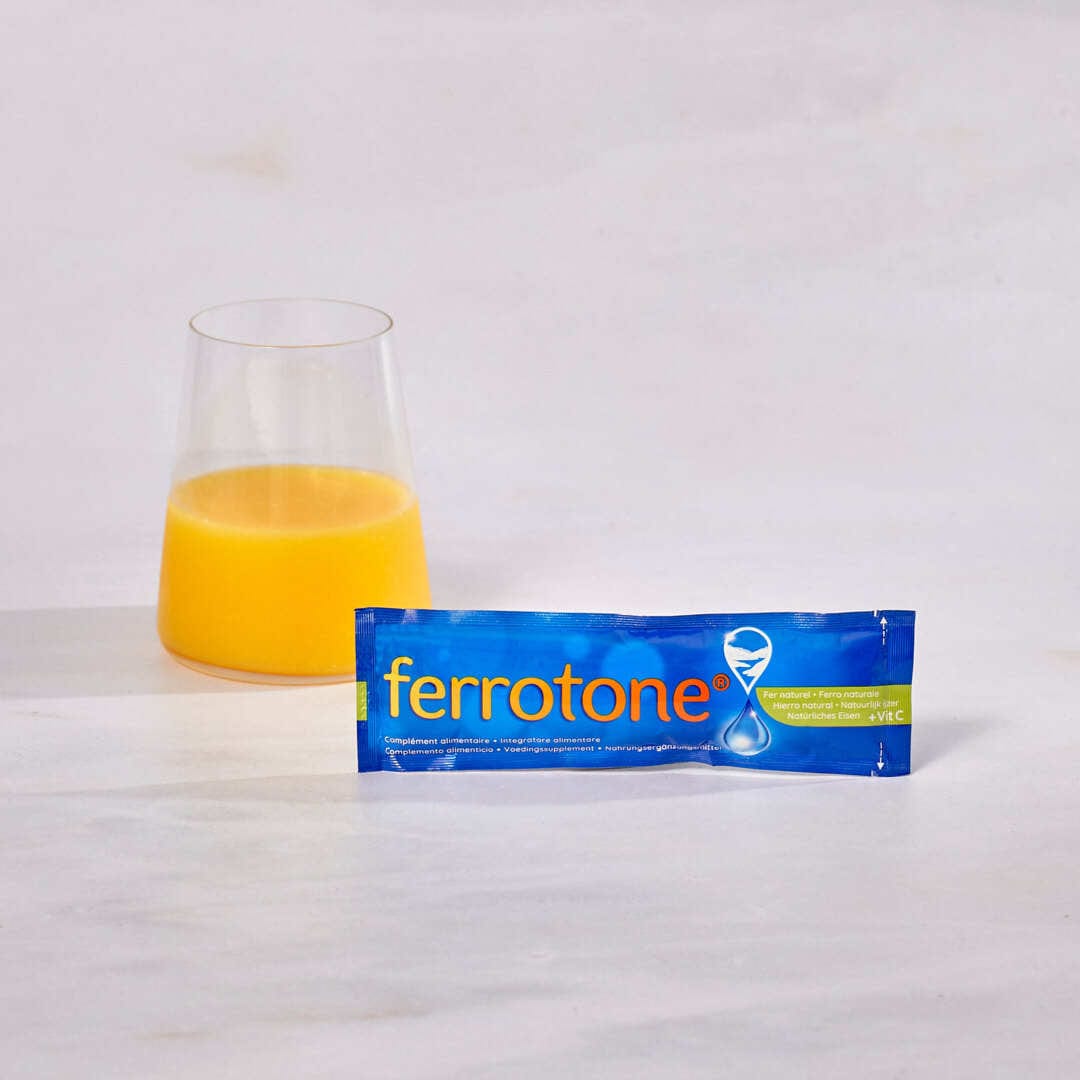
Iron Supplements (2)
With the hectic lifestyles many of us have, it can be hard to get enough iron from our diets alone, and sometimes we need extra help. This is when an iron supplement is a great way to help us maintain healthy iron levels.
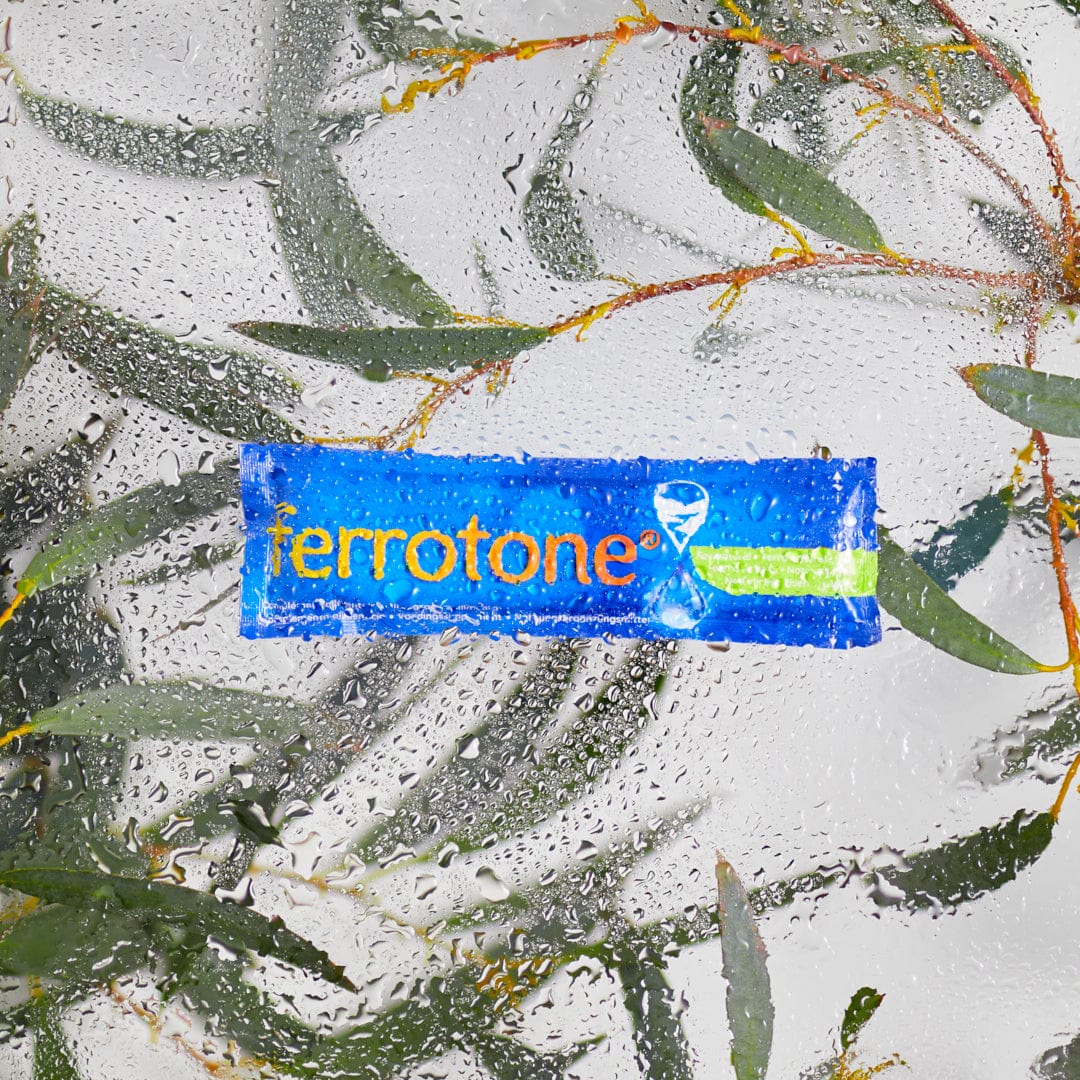
Liquid Iron Supplements (2)
Iron supplements are typically available in pill or tablet form, but these often contain high levels of iron that may be harder for the body to absorb. Liquid iron supplements like Ferrotone® may be gentler on the stomach with a lower dose and higher bioavailability, often resulting in fewer side effects than higher-dose pills or tablets (3).
(1) National Institutes of Health. (2021). Iron: Fact Sheet for Health Professionals. https://ods.od.nih.gov/factsheets/Iron-HealthProfessional/
(2) Food supplements should not be used as a substitute for a varied and balanced diet and a healthy lifestyle. Always read the label and use only as directed.
(3) Worwood M, at al, ‘Iron absorption from a natural mineral water (Spatone Iron-Plus)’, Clin Lab Haematol. 1996 Mar;18(1):23-7
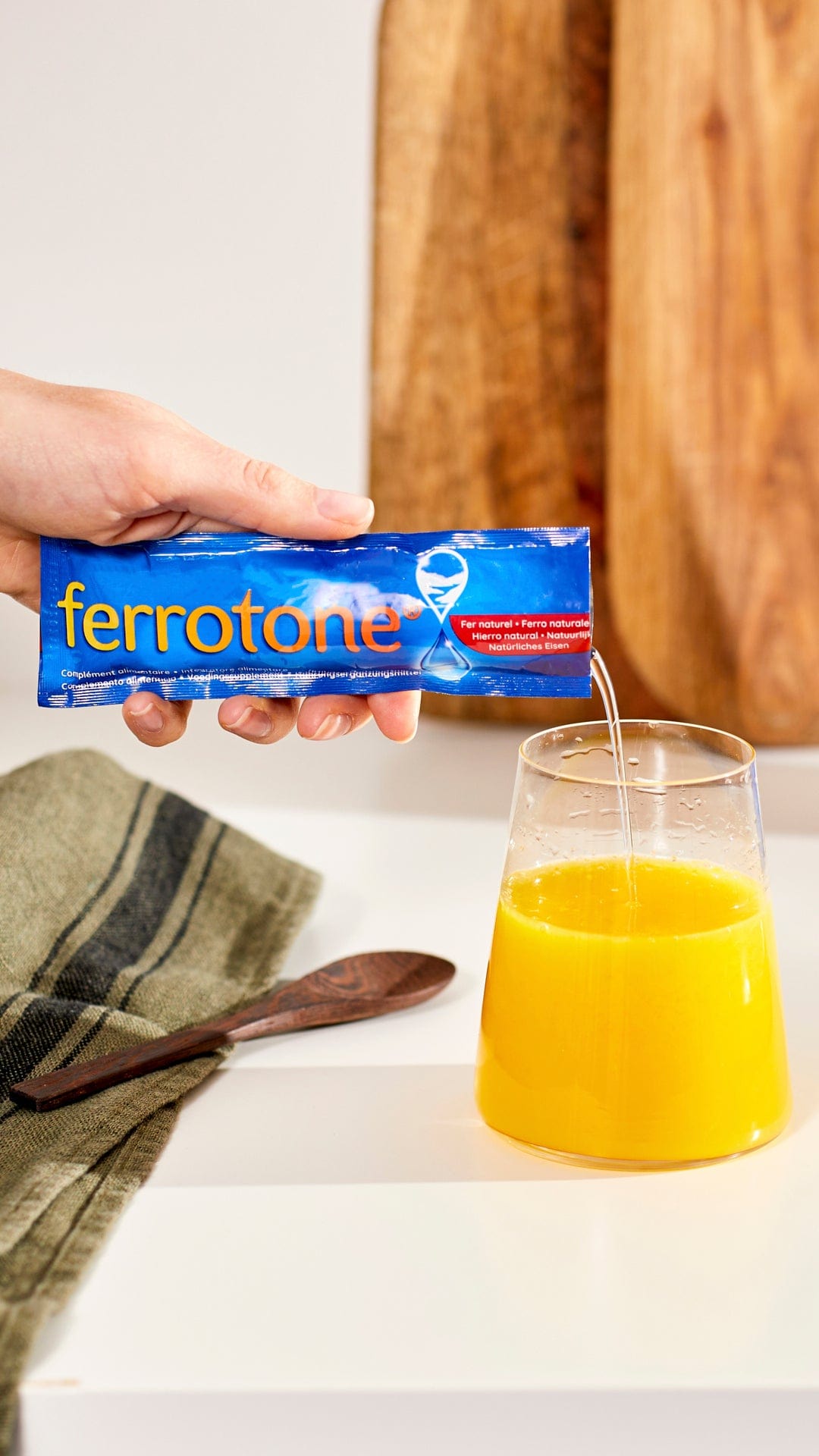
Recommended Daily Allowance
According to the World Health Organization, the most common mineral deficiency in humans is iron (4).
The recommended daily allowance (NRV) of iron vary between 4-16 mg per day based on age group and it goes up to 16 mg per day for pregnant women and breastfeeding women. Although an adult woman only needs between 1.5 and 2 mg of iron per day (up to 6 mg during pregnancy), it must be taken into account in the daily diet that the average person cannot absorb most of the iron from food sources (5).
In Europe, 61-97% of women have a dietary iron intake below 15 mg/day. This contributes to a low iron status in many women (6).
Ferrotone® Liquid Iron has been shown in a study to have a higher absorption rate (from 10 to 40% absorption, with an average absorption of 23%) than conventional iron supplements (7).
Just as iron is a crucial component of the blood in the adult human body, it’s also a crucial component of the blood of a developing foetus. In fact, growing babies are still absorbing iron from their mothers breast milk for up to 6 months after their births (8).
During pregnancy, your levels may can be screened by your doctor to ensure your body has enough for you and your developing baby. If you are concerned about your iron levels, you should speak to your healthcare professional.
(4) World Health Organization. The World Health Report. Geneva: World Health Organization; 2022.
(5) ANSES, Les références nutritionnelles en vitamines et minéraux, : Les références nutritionnelles en vitamines et minéraux | Anses - Agence nationale de sécurité sanitaire de l’alimentation, de l’environnement et du travail.
(6) Dietary Iron Intake in Women of Reproductive Age in Europe: A Review of 49 Studies from 29 Countries in the Period 1993–2015 : (PDF) Dietary Iron Intake in Women of Reproductive Age in Europe: A Review of 49 Studies from 29 Countries in the Period 1993–2015.
(7) Worwood et al. Iron absorption from a natural mineral water (Spatone® Iron-Plus), Clin. Lab. Haem. 1996, 18, 23-27.
(8) Society, C. P. (2007, April 12). Iron needs of babies and children. Retrieved January 18, 2018, https://www.ncbi.nlm.nih.gov/pmc/articles/PMC2528681/

Who Does Iron Benefit?
Iron is essential for everyone, as it helps form haemoglobin, the protein in red blood cells that carries oxygen throughout the body. However it is even more important for those with active lifestyles, such as athletes, people on plant-based diets, like vegans, who may need to pay extra attention to their iron intake, and is particularly important for women.
Learn More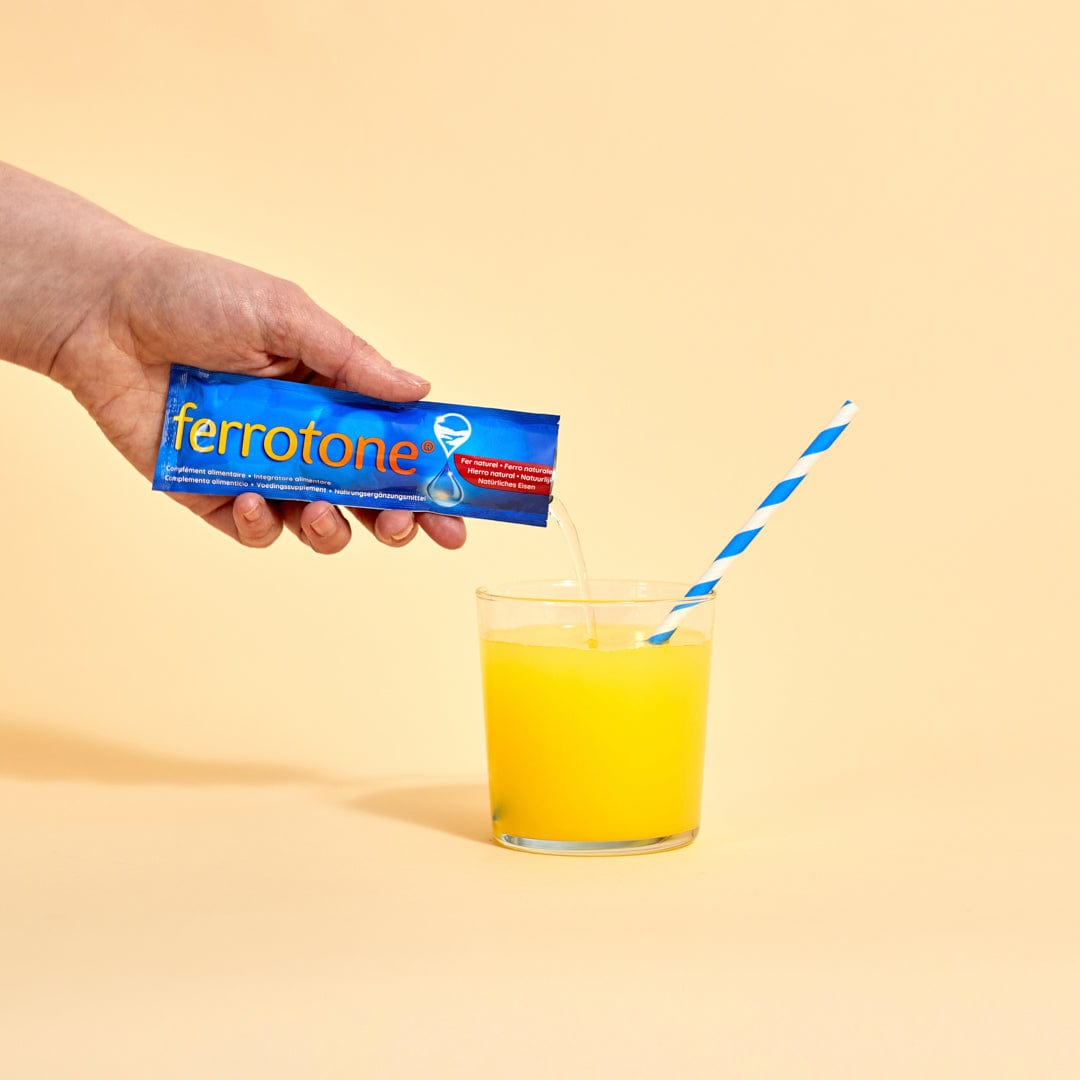
The Role of Iron
The role of iron in our bodies is a complex one. Iron is an essential element for blood production and supports many other bodily functions. We need to ensure we maintain normal iron levels to function at our best. As our bodies do not produce iron, we need to make sure we include sufficient iron as part of our healthy diets.
Learn More